news
Just IN : Naira – for-Visa : Foreign Affairs Minister Yusuf, Directs all Embassies to comply with EFCC’s directive
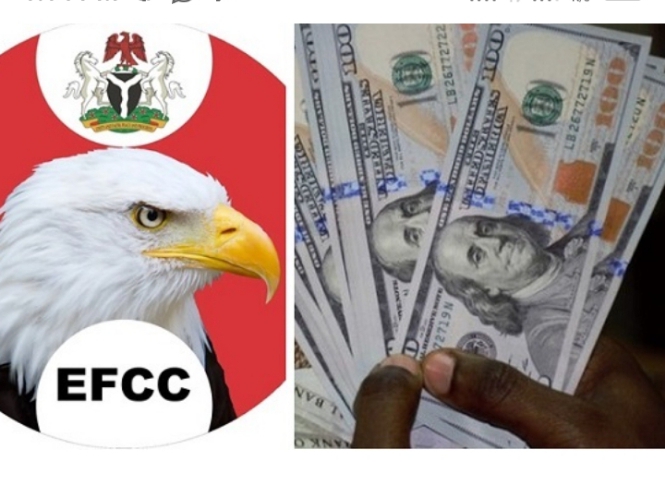
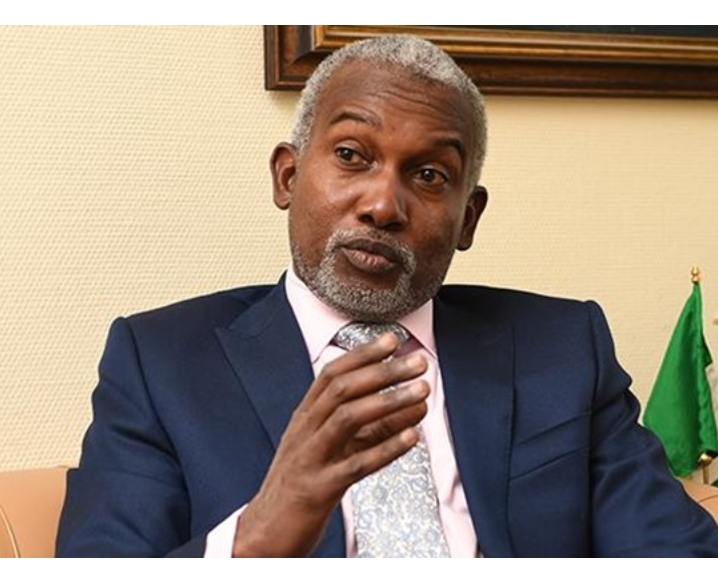 Commission says some missions use N1,900 to dollar exchange rate
Commission says some missions use N1,900 to dollar exchange rate
Demands banks’ response to enquiries within 24 hours
Foreign Affairs Minister Yusuf Tuggar has written all the foreign missions in the country to comply with the directive of the Economic and Financial Crimes Commission (EFCC) to charge payment for visa and consular services in naira instead of dollar.
Tuggar has already met with a few envoys who sought more clarifications on the EFCC’s advisory.
It was learnt that the EFCC advisory against dollar-denominated service was necessitated in part after some embassies adopted N1,800-N1,900 exchange rates to a dollar.
An embassy was found to have set up an account unit where visa applicants were paying cash in dollar for services outside the conventional banking system.
Some embassies are understood to have started implementing the EFCC’s advisory on naira policy for consular services.
It was gathered that the EFCC has entered into an understanding with the Central Bank of Nigeria (CBN) for prompt remittance of the funds generated by the embassies to their home countries at official rate.
In an April 5, 2024 advisory to the Foreign Affairs Minister, the EFCC Executive Chairman, Mr. Ola Olukoyede, had asked government to stop foreign missions in Nigeria from charging visa and other consular services in foreign denominations.
He also advised all embassies to adopt Nigeria’s regulatory regime in fixing the exchange rate of the cost of their services.
He said the commission has observed the violation of Section 20(1) of the Central Bank of Nigeria Act, 2007 which makes currencies issued by the apex bank the only legal tender in Nigeria.
A top source told The Nation that the Minister of Foreign Affairs asked all foreign missions to implement the EFCC advisory.
EFCC urges embassies not to charge visa, other services in dollar
The source said: “The Federal Government has adopted the advisory of the EFCC which is backed by the CBN Act. In line with this, the Minister, Amb. Yusuf Tuggar, has formally written all embassies to charge and accept payment for visa and consular services in naira.
“In fact, the Ambassador of one of the missions collecting dollars for consular services demanded an audience with the Minister of Foreign Affairs for clarifications on the new policy. Tuggar, who met with the affected envoy, said there is no going back on the naira policy.
“But the EFCC has also reached an understanding with the CBN for the prompt remittance of all consular fees collected at the official exchange rate to the embassies or countries. The Federal Government will not default in remitting funds.”
It was gathered that the EFCC issued the advisory following discovery that some embassies had adopted N1,800 to N1,900 exchange rates for applicants for visa and consular services.
“Some embassies went beyond official and parallel market rates in fixing exchange rate for consular services. They were charging as high as N1,800 to N1,900,” one source said.
“A foreign mission was even collecting dollars in cash from visa applicants. The practice was outside the banking system.
“From feedback, some of the embassies are already charging for consular services, including visa, in naira. We will not relent in ensuring full compliance by all missions.
“There is a desk monitoring compliance with the naira-for-visa policy. Any infraction will be reported to the Federal Government through the Ministry of Foreign Affairs.”
The advisory, signed by the EFCC Executive Chairman, Mr. Ola Olukoyede, reads in part: “…I wish to notify you about the commission’s observation, with dismay, regarding the unhealthy practice by some foreign Missions to invoice consular services to Nigerians and other foreign nationals in the country in United States Dollar ($).
“This practice is an aberration and unlawful as it conflicts ‘with extant laws and financial regulations in Nigeria. Section 20(1) of the Central Bank of Nigeria Act, 2007 makes currencies issued by the apex bank the only legal tender in Nigeria.
“It states that ‘the currency notes issued by the Bank shall be the legal tender in Nigeria on their face value for the payment of any amount’.
“This presupposes that any transaction in currencies other than the naira anywhere in Nigeria contravenes the law and is therefore illegal.”
The commission added: “The refusal by some Missions to accept the Naira for consular service in Nigeria and also comply with foreign exchange regulatory regime in fixing the exchange of the cost of their services is not only illegal but represents an affront on the country’s sovereignty symbolised by the national currency. It undermines Nigeria’s monetary policy and aspiration for sustainable economic development.
“This trend can no longer be tolerated, especially in a volatile economic environment where the country’s macroeconomic policies are constantly under attack by all manner of state and non-state actors.
“In the light of the above, you may wish to convey the commission’s displeasure to all Missions in Nigeria and restate Nigeria’s desire for their operations not to conflict with extant laws and regulations in the country.
“Please accept, as always, the assurances of my highest consideration and respect.”
Attend to enquiries on money laundering, others within 24 hours, EFCC boss tasks bankers
The EFCC boss has also urged bankers to respond to the commission’s enquiries within 24 hours to aid its investigations.
“I don’t want to be charging banks alongside suspected criminals, because doing so can wreak havoc on the economy. It will even discourage investors from coming to the country,” Olukoyede said during a roundtable with compliance officers of banks in Ilorin, the Kwara State capital.
He added: “Our intention is to use the anti-corruption fight to bolster the economy. So, we must work together to save this country.”
Represented by acting Zonal Director, Ilorin Command Harry Erin, Pastor Olukoyede said: “We need to find a common ground to work together. You have a responsibility to fight corruption.”
The EFCC chair also expressed concerns over the use of fintech (private banking) by criminals to perpetuate crimes.
news
BREAKING: Tinubu Names Tunji Disu Acting Inspector General After Egbetokun’s Exit

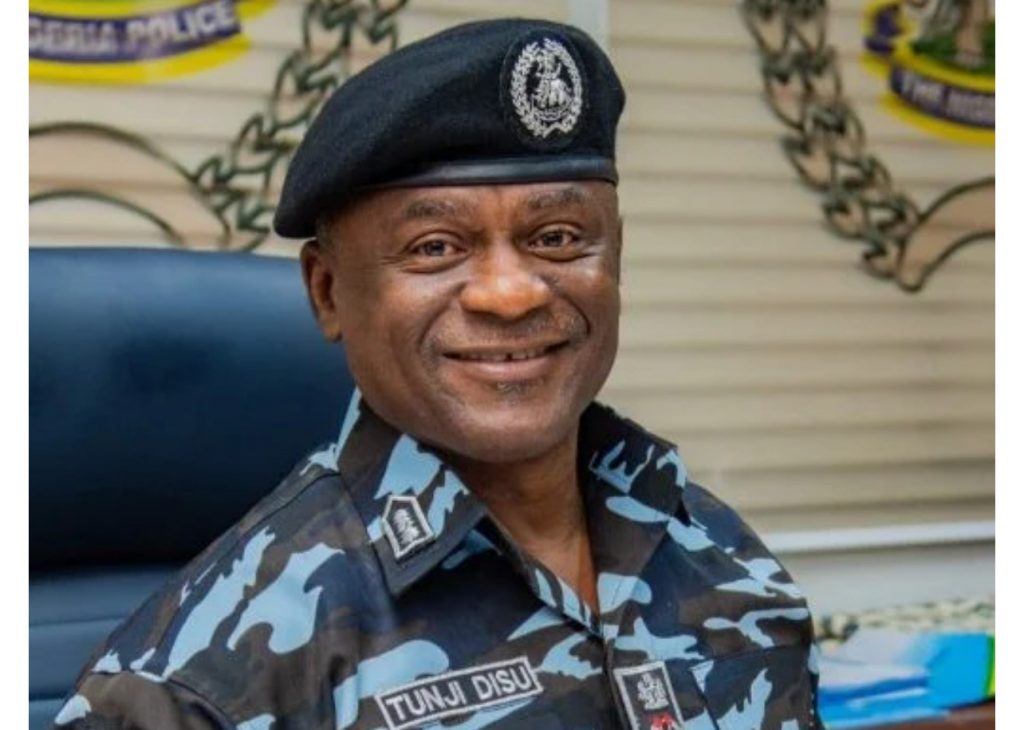
President Bola Tinubu has accepted the resignation of the Inspector-General of Police, Kayode Egbetokun, and approved the appointment of Tunji Disu as Acting Inspector-General of Police with immediate effect.
Our correspondent had earlier reported that Egbetokun tendered his resignation letter on Tuesday, citing pressing family considerations.
Appointed in June 2023, Egbetokun was serving a four-year term scheduled to conclude in June 2027, in line with the amended provisions of the Police Act.
In a statement issued on Tuesday by his Special Adviser on Information and Strategy, Bayo Onanuga, the President received the letter earlier on Tuesday and expressed appreciation for his service to the nation.
He also commended Egbetokun’s “decades of distinguished service to the Nigeria Police Force and the nation,” acknowledging his “dedication, professionalism, and steadfast commitment to strengthening internal security architecture during his tenure.”
“In view of the current security challenges confronting the nation, and acting in accordance with extant laws and legal guidance, President Tinubu has approved the appointment of Assistant Inspector-General of Police Tunji Disu to serve as Acting Inspector-General of Police with immediate effect.
“The President is confident that AIG Disu’s experience, operational depth, and demonstrated leadership capacity will provide steady and focused direction for the Nigeria Police Force during this critical period,” the statement read.
It added that in compliance with the provisions of the Police Act 2020, the President will soon convene a meeting of the Nigeria Police Council to formally consider Disu’s appointment as substantive Inspector-General of Police, after which his name will be forwarded to the Senate for confirmation.
The President reaffirmed his administration’s commitment to enhancing national security, strengthening institutional capacity, and ensuring that the Nigeria Police Force remains professional, accountable, and fully equipped to discharge its constitutional responsibilities.
news
Breaking : Nigeria Gets New Electoral Act as Tinubu Signs 2026 Reform Bill

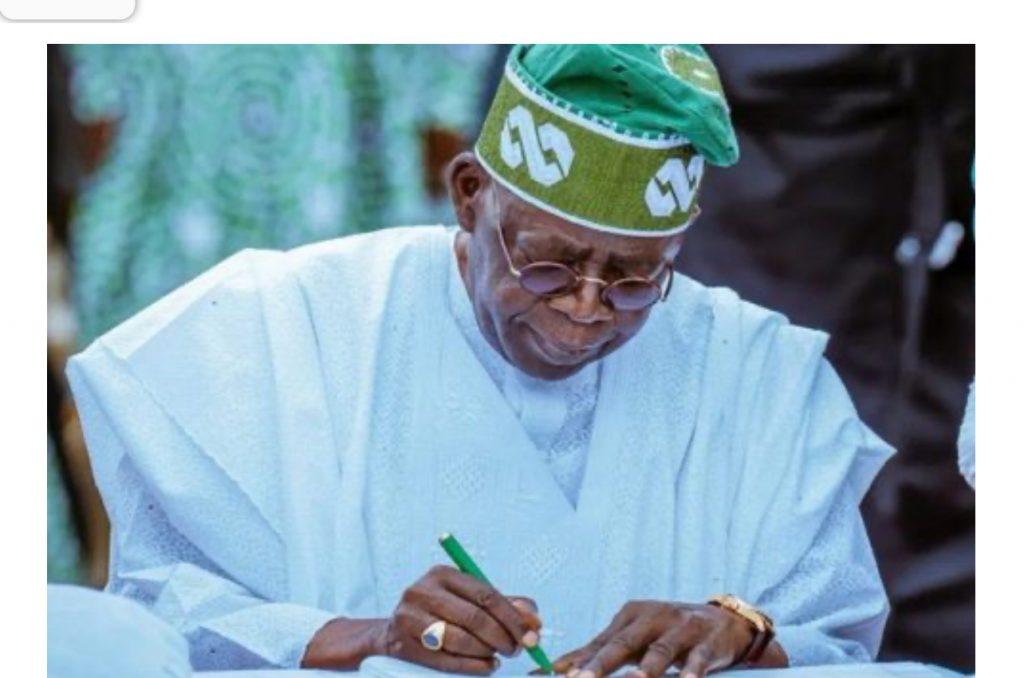
President Bola Tinubu has signed the Electoral Act 2026 (Amendment) into law, days after the Independent National Electoral Commission (INEC) released the timetable for the 2027 general elections.
The signing ceremony took place at the State House, Abuja, at about 5:00pm on Wednesday, with principal officers of the National Assembly in attendance.
The National Assembly had on Tuesday passed the Electoral Act 2026 (Amendment) Bill.
The latest amendment comes amid intense public debate over the electronic transmission of election results in real time.
Last week, protests erupted at the National Assembly complex as civil society organisations and opposition figures mounted pressure on lawmakers to mandate live transmission of results from polling units directly to INEC’s central server.
The protesters argued that real-time transmission would reduce result manipulation and strengthen public confidence in the electoral process.
However, the ruling All Progressives Congress (APC) and some stakeholders have raised concerns about the technical feasibility of live transmission, particularly in communities with weak telecommunications infrastructure. They have argued for a phased or hybrid approach that would allow manual collation where electronic systems fail.
news
EFCC Extends El-Rufai’s Stay in Custody Amid ₦432bn Probe
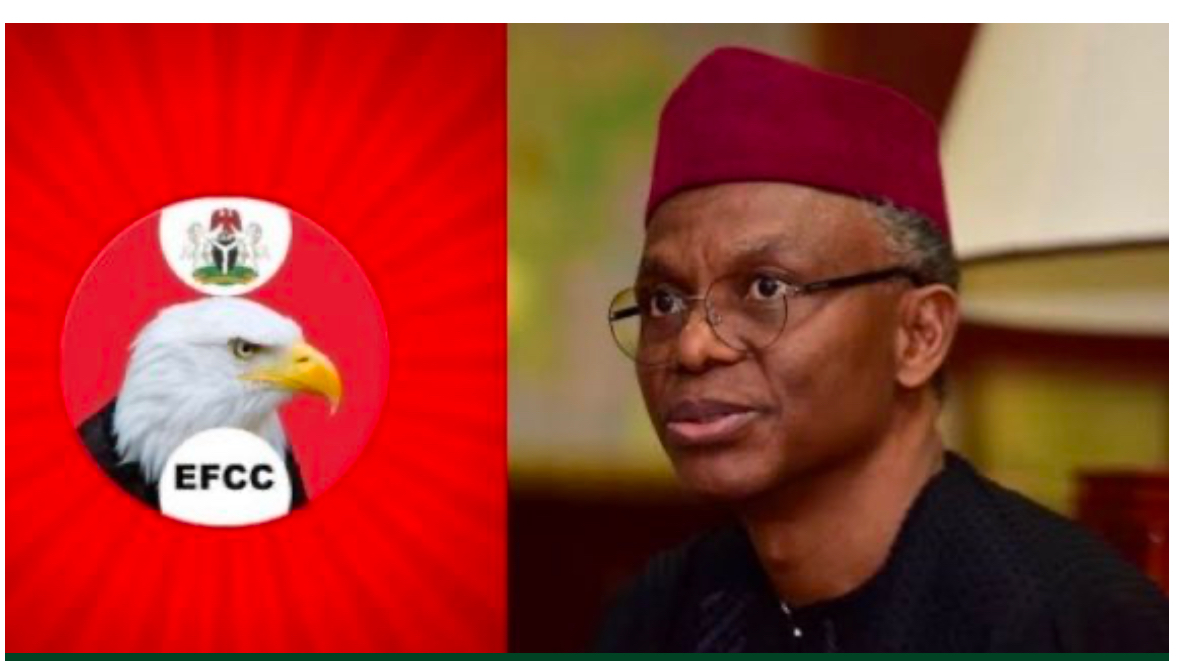
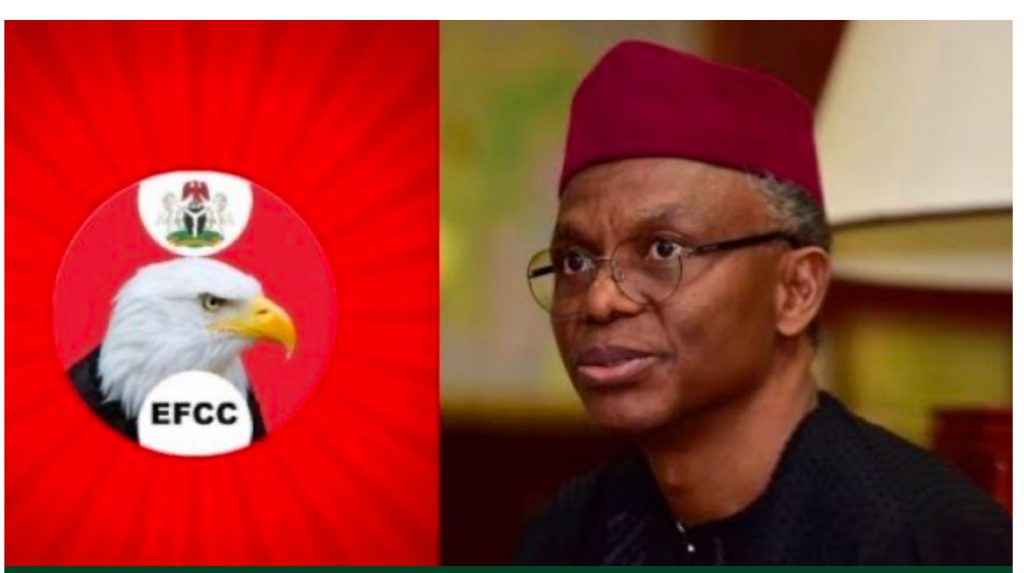
Former Kaduna State Governor, Nasir El-Rufai, on Tuesday spent the second night in the custody of the Economic and Financial Crimes Commission, as his lawyer, A.U Mustapha (SAN), pushes for his release on bail.
There are, however, indications that the commission may seek a remand order to extend his stay in custody to enable him to respond to questions posed by investigators handling his matter.
The former governor arrived at the EFCC headquarters in Abuja on Monday around 10 a.m. for questioning in connection with an alleged N432bn corruption probe. He was, however, detained at the commission, where investigators continued to grill him.
An official of the commission who pleaded anonymity said the anti-graft agency was considering obtaining a remand order after the expiration of the hours allowed by law to enable investigators conclude questioning him.
“Forget the speculations being peddled on social media that he has been released. He has not. El-Rufai is still with us and will be spending another night in custody.
“He is very much with us and will remain so because the investigators are considering getting a remand order after the expiration of the 48 hours allowed by law.
“The investigators need some time with him to answer questions arising from his eight years as governor in Kaduna State,” the source said.
Speaking in a telephone conversation with The PUNCH on Tuesday, El-Rufai’s counsel, Mustapha, confirmed that the former governor remained with the anti-graft agency, while insisting that his client had fully cooperated with investigators.
He described his client as a responsible citizen who is not a flight risk if granted bail.
Mustapha said, “Well, as a responsible citizen, he was invited and, true to his word, he honoured the invitation.
“As we speak, he is still with the EFCC. He is cooperating to the best of his capacity, and we hope that the EFCC, given its integrity, will be kind enough to admit him to bail because he is presumed innocent, and I am sure if he is granted bail, he will not jump bail.
“He is a responsible citizen, and everybody knows him. He came to Nigeria on his own volition. He wrote a letter that he was going to honour the EFCC invitation, and he kept his word as a man of integrity. We’re hopeful that very soon he will be granted bail.”
When asked about the specific allegations against his client, Mustapha declined to offer details.
“You’re asking the right question from the wrong person. That question can only be answered by the EFCC and not by me. I would just be speculating, and lawyers don’t do that.”
Pressed further on whether he witnessed parts of the interrogation and what it was about, Mustapha responded, “That would be prejudicial. It’s a confidential matter and not meant for public consumption.”
The EFCC’s interrogation is linked to the report of an ad hoc committee of the Kaduna State House of Assembly set up in 2024 to probe finances, loans, and contracts awarded between 2015 and 2023 during El-Rufai’s administration.
EFCC extends El-Rufai detention, Plateau indigenes killed, other top stories
Rep backs real-time electronic transmission of election results
The committee, chaired by Henry Zacharia, had alleged that several loans obtained during the period were not utilised for their intended purposes.
While presenting the report, the Speaker, Yusuf Dahiru Leman, claimed that about N423bn was allegedly siphoned under the former governor’s administration.
The committee recommended the investigation and prosecution of El-Rufai and some former cabinet members over alleged abuse of office, diversion of public funds, money laundering, contract awards without due process, and reckless borrowing.
The Assembly subsequently forwarded petitions to the EFCC and the Independent Corrupt Practices and Other Related Offences Commission.
El-Rufai has denied the allegations, describing the probe as politically motivated, and insisted that loans obtained during his tenure were properly appropriated and used for infrastructure, education, healthcare, and security.
On Monday, an EFCC source said the commission had been investigating the matter for about a year, noting that suspects are usually invited after investigations have reached an advanced stage.
“The commission has been investigating him for about a year now. As a commission, we don’t just rush to invite suspects. Persons accused are always the last; that is, after we might have done our investigation to an advanced stage.
“We are investigating him on the allegations against him by the Kaduna State Assembly,” the source said.
Meanwhile, in a separate development, the Department of State Services has filed criminal charges against El-Rufai before the Federal High Court in Abuja over alleged unlawful interception of the phone communications of the National Security Adviser, Nuhu Ribadu.
The three-count charge, marked FHC/ABJ/CR/99/2026, was filed under the Cybercrimes (Prohibition, Prevention, etc.) Amendment Act, 2024, and the Nigerian Communications Act, 2003.
According to the charge sheet, El-Rufai allegedly admitted during a February 13, 2026, appearance on Arise TV’s Prime Time Programme that he and unnamed associates unlawfully intercepted Ribadu’s communications.
Count One alleged that El-Rufai “did admit during the interview that you and your cohorts unlawfully intercepted the phone communications of the National Security Adviser, Nuhu Ribadu,” an offence said to be punishable under Section 12(1) of the Cybercrimes Amendment Act.
Count Two accused him of acknowledging knowledge of an individual involved in the alleged interception without reporting it to security agencies, while Count Three alleged that he and others still at large used technical equipment that compromised public safety and national security.
The prosecution further claimed that the alleged act, reportedly admitted during the television interview, caused “reasonable apprehension of insecurity among Nigerians.”
He is yet to be arraigned.
-

 news5 years ago
news5 years agoUPDATE: #ENDSARS: CCTV footage of Lekki shootings intact – Says Sanwo – Olu
-

 lifestyle6 years ago
lifestyle6 years agoFormer Miss World: Mixed reactions trail Agbani Darego’s looks
-

 health5 years ago
health5 years agoChairman Agege LG, Ganiyu Egunjobi Receives Covid-19 Vaccines
-

 lifestyle4 years ago
lifestyle4 years agoObateru: Celebrating a Quintessential PR Man at 60
-

 health6 years ago
health6 years agoUPDATE : Nigeria Records 790 new cases of COVID-19
-

 health6 years ago
health6 years agoBREAKING: Nigeria confirms 663 new cases of COVID-19
-

 entertainment1 year ago
entertainment1 year agoAshny Set for Valentine Special and new Album ‘ Femme Fatale’
-

 news9 months ago
news9 months agoBREAKING: Tinubu swears in new NNPCL Board


